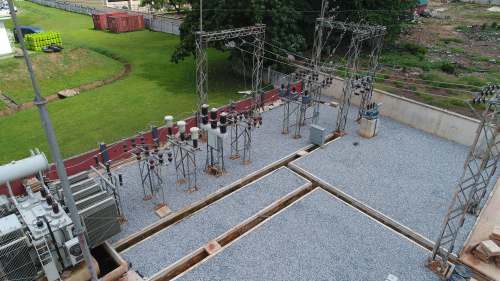In recent weeks, Nigerians have been experiencing improved power supply, which has caused quite a controversy both offline and online.
The official Twitter page of Ikeja Electricity tweeted in the early hours of Tuesday 06, September 2022, asking the consumers to rate the power supply in their respective areas.
With over 10,000 engagements on the tweet, consumers have quite a lot to say on the matter.
Here are what the consumers are saying on Twitter:
@simply_khaybee said “NEPA sef don get mouth now shaa. Well, we’re enjoying your service.”
@McTMO said “All power belongs to God. We paid for your service.”
@Adebanjodavid10 said “To be very honest (Tbvh), it’s becoming scary. We are now afraid of too much light, I hope it’s not the light we would be using after next year’s presidential election that we are already using now.
Ko ni funny o.”
@Adeyemi07709839 said, “Very bad in Eyita area ikorodu close to Ilepo Oba /Benson.”
@cyrilemeka said “Yea!!! What changed??
Did someone put fire in you people’s yansh?? Even when it’s raining there’s light.
The 10-liter fuel I bought last week is still there unused..”
@raplord_efizzy said “Tbh, y’all done improve a whole lot. But we haven’t been supplied power for 2 days now in Palm Avenue, Mushin. Make una do something about am.”
@Luurd_hoodlum said, “Tbh I’m proud to say that we enjoy average 18hrs electricity daily. It’s the only thing I enjoyed in this Buhari Government.”
@maczimus said, “It is better than before.
It will be good when you can do 365days of an uninterrupted power supply.
It will be excellent when you can sustain it for 5 years, then we will know you have arrived.
For now well done but a lot is expected.
Gracias.”
@erondu_reuben said, “You people are fantastically crooked and wicked.
So, all these while you are capable of providing constant electricity?
Why keep Nigerians in perpetual darkness when you are generating enough? Why?.”
@solomon_joseph1 said, “My area is very much okay with light but am concerned about the bill to come, hope it’s not crazy bill as usual cos the last one was something else, how will you guys send a random figure of 165,000 to a bungalow building without a factory machine, am talking about shomolu axis.”
Power distribution kicked off on a positive foot in September, a change many Nigerians are starting to embrace. This is after the several grid disruptions in the first half of the year and the recently concluded 14 hours strike that happened last month.
According to the Transmission Company of Nigeria (TCN), the daily tracker of electricity in Nigeria shows supply peaked at a record high of 5,043 megawatts on the 1st of September, which is the highest daily generation recorded.
The power supply is an essential need for remote workers, distance learning students and the majority of Nigerians and their businesses.


 Forex3 weeks ago
Forex3 weeks ago


 Naira2 weeks ago
Naira2 weeks ago
 Billionaire Watch2 weeks ago
Billionaire Watch2 weeks ago




 Naira3 weeks ago
Naira3 weeks ago




 Naira2 weeks ago
Naira2 weeks ago




 Naira1 week ago
Naira1 week ago




 Naira4 weeks ago
Naira4 weeks ago




 Naira4 weeks ago
Naira4 weeks ago

















